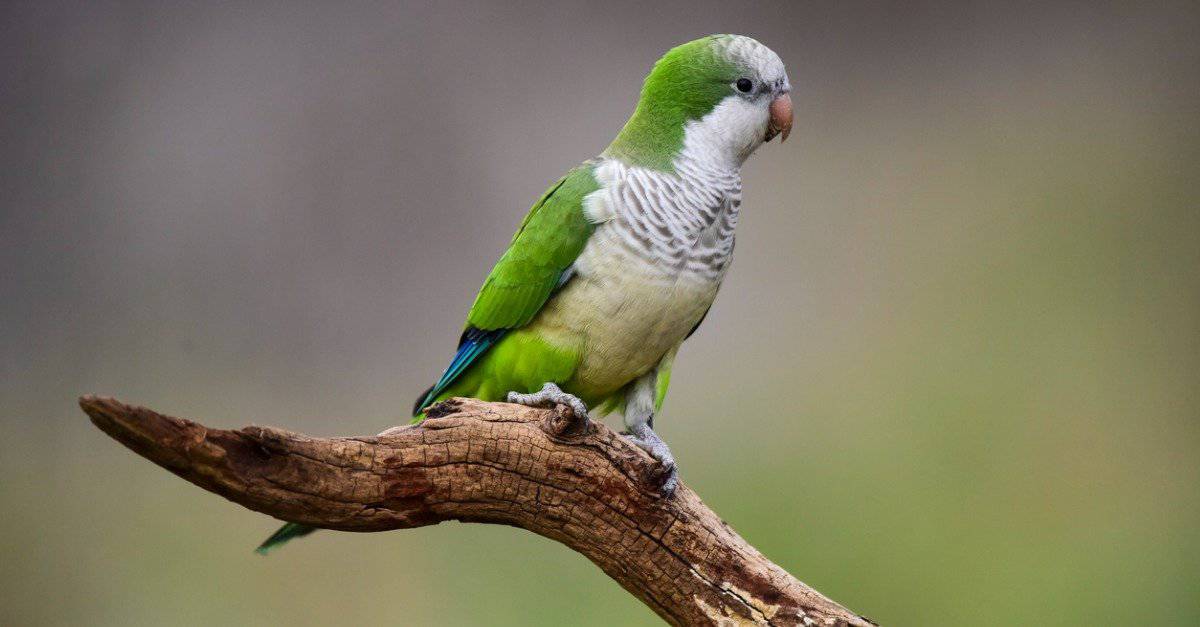Quaker parrots are popular pets for those who want a bird with a fun-loving personality that is easy to care for (at least compared to other parrot species). They are funny and have plenty of personality, which they express through their behavior and even talking. Even among parrots that talk, these birds are very chatty and can mimic words, phrases, and complete sentences. They are on the smaller side, making them great for homes that can’t support a pet that needs more space.
Quaker parrots are sometimes called monk parrots or monk parakeets due to their small size. They generally top out around 5 ounces at the most. Most are around 11 or 12 inches long from their head to their tail. They have bright green plumage with gray heads and chests. Quaker parrots are known for being highly intelligent and like to live in large colonies in the wild.
Purchase Cost of Quaker Parrots
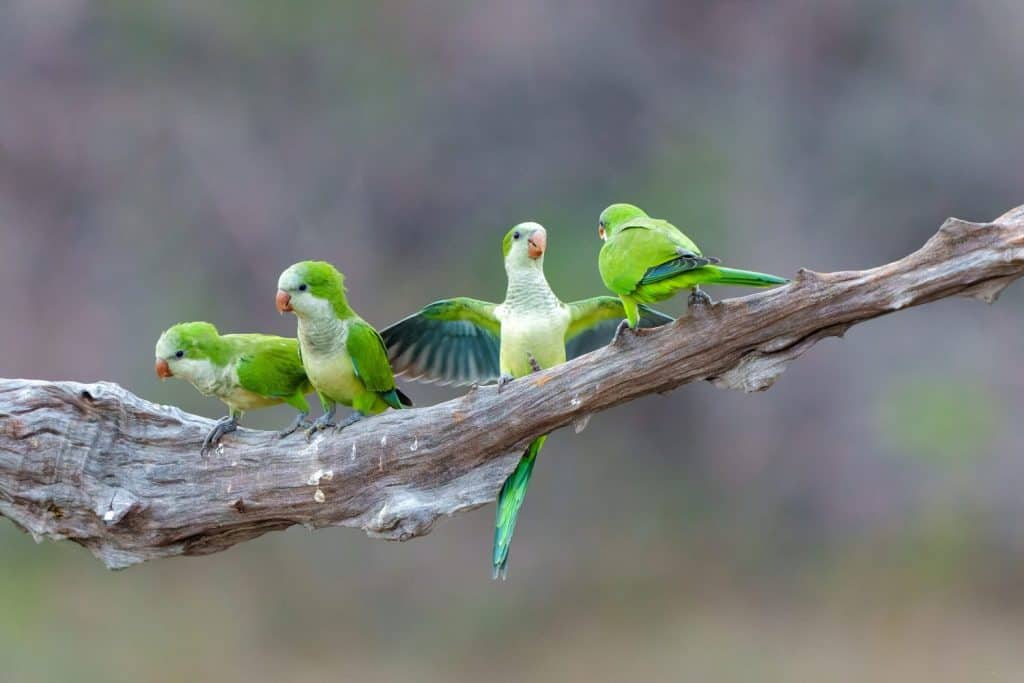
These small parrots are sometimes called Quaker parrots, Quaker parakeets, monk parrots, or monk parakeets.
©Henk Bogaard/Shutterstock.com
Most of the time, Quaker parrots cost between $300 and $600 to purchase. Keep in mind that this cost is only for the bird. You’ll need to also purchase an appropriate habitat, food and water dishes, bird feed, toys, and other things that will make your new bird feel right at home with your family. If you are adopting multiple parrots, such as a bonded pair, you’ll need separate cages for each of them since these birds can be territorial. While they may get along with each other, it’s best to have separate accommodations to make sure they can remain friends.
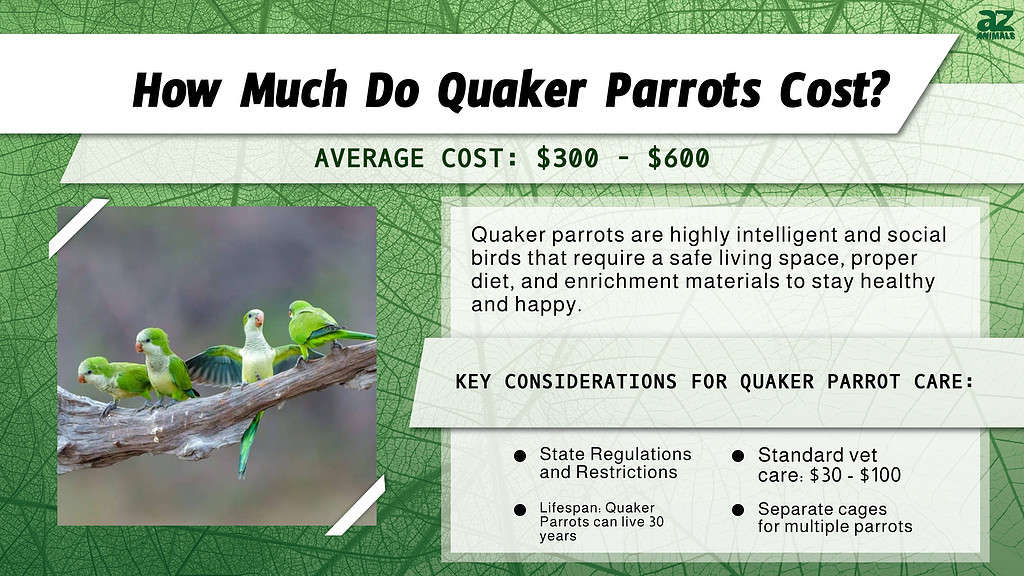
You may need to look around and seek out an exotic bird breeder or retailer to find a Quaker parrot. When looking at breeders, it’s important to do your research and find one that follows sustainable and humane practices. You should also look for a veterinarian that can work with exotic birds. The cost of these visits can range based on the services provided but generally run between $30 and $100 for standard care. Specialty visits can be more.
Can I Own a Quaker Parrot?
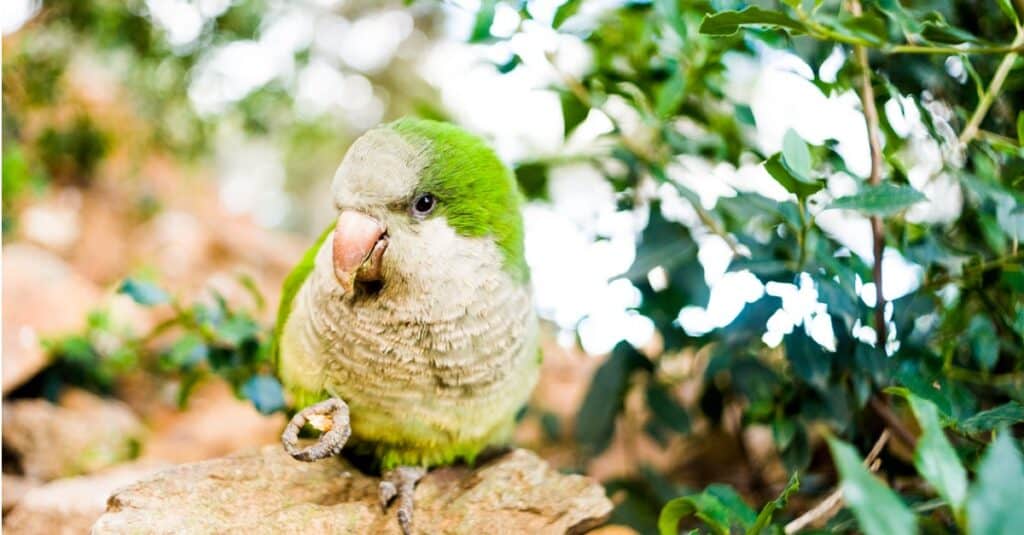
Quaker parrots have been banned from being owned in some states, while others have required documentation or additional steps for owners to take.
©iStock.com/beingbonny
Some states have additional regulations or restrictions when it comes to owning a Quaker parrot. Because these are exotic birds, regulations provide an additional level of scrutiny that keeps inhumane or illegal breeding in check. The rules vary by state and are updated periodically. So always check with your state to make sure that you have the required documentation for your Quaker parrot.
It is illegal to own Quaker parrots in some states. These include California, Colorado, Connecticut, Georgia, Hawaii, Kentucky, Pennsylvania, Rhode Island, Tennessee, and Wyoming. Others, including New Jersey, New York, and Ohio, require you to register your parrot and pay for a special permit. In New York, you have to put an ID band on them so that they can be returned if they get out. Ohio requires that you clip the bird’s wings to prevent them from flying away at all.
Why Are Quaker Parrots Illegal in Some States?
These birds are not native to North America, so they can wreak havoc on the local ecosystem if they escape. Not only do they reproduce often and fast, but they live in colonies that amplify any negative impact on the environment. Quaker parrots are omnivores and eat food that other birds and wildlife rely on to survive. They can also eat crops.
Taking Care of Your New Parrot
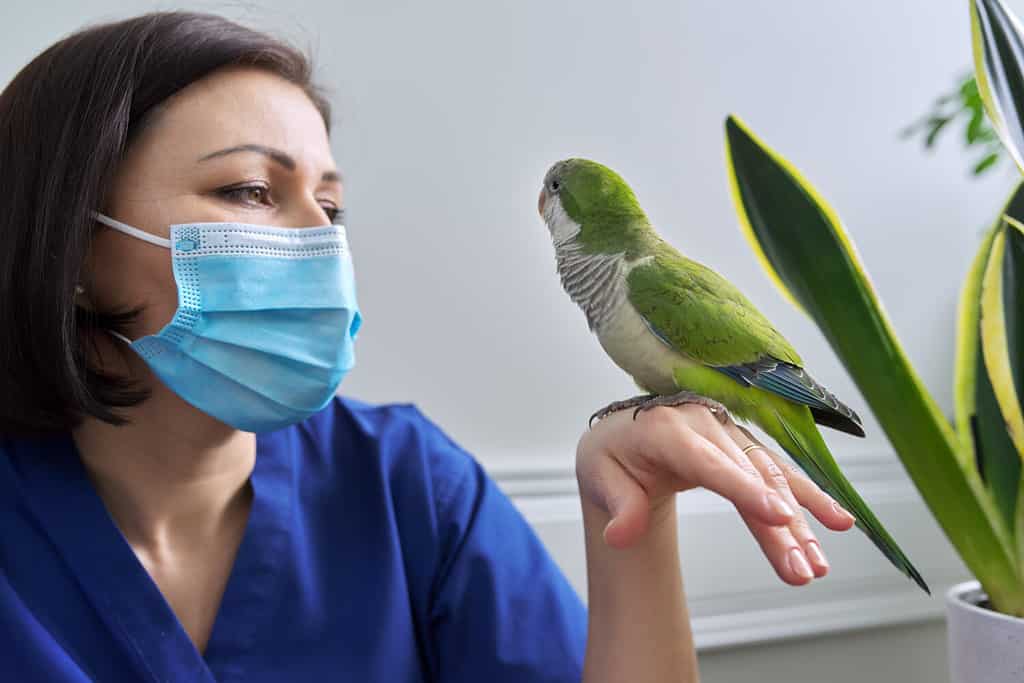
Make sure to spend time with your new parrot to provide it with companionship and help it form a strong bond.
©VH-studio/Shutterstock.com
To keep your new pet bird happy and healthy, you’ll need to provide a safe place for them to live as well as food, water, and enrichment materials. Pellet and seed bird food is a good option. You can supplement with fresh fruits and vegetables to replicate their natural diet as well as provide some variety. They tend to gain weight when they have access to high-fat nuts, such as peanuts, so these should be limited.
While very social, Quaker parrots can also be territorial when it comes to their cages. In the wild, they build nests. Most parrots prefer nesting cavities, such as holes in tree trunks or other enclosed spaces, to lay their eggs. Quaker parrots are one of the few that build actual nests. You can have multiple Quaker parrots but you should give each its own cage. Keeping them separate will ensure that each has its own living space.
Quaker parrots like to play so consider adding toys, perches, and other things for them to explore. You can change these out periodically to keep them interested. These birds are also entertaining to interact with and love to entertain their human family members. Talking back and forth with your parrots is fun for you and good for them. Quaker parrots are particularly talkative so be ready for some really chatty conversations. They also move around a lot, making motions that look like “quaking” (one explanation for their name).
Like most parrots, Quaker parrots live for a long time. They can live up to 30 years. Make sure that you are ready to care for your pet for the long term before getting a Quaker parrot. Releasing them into the wild can have negative effects on the local environment, not to mention it is traumatic for your pet. They form strong bonds with their owners and don’t like to be shuttled from home to home.
Thank you for reading! Have some feedback for us? Contact the AZ Animals editorial team.

